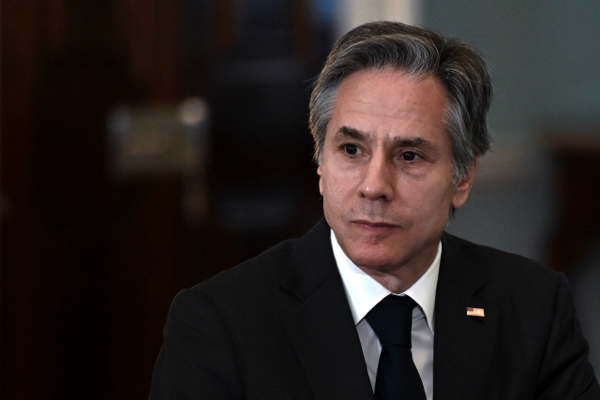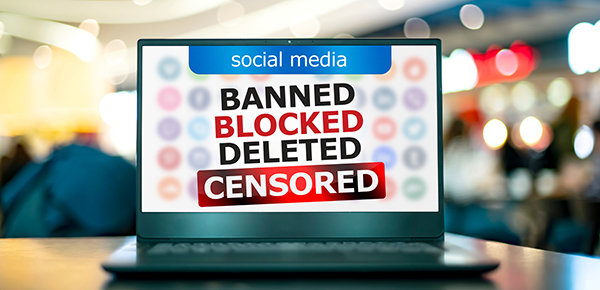Poll reveals majority of Americans view TikTok as a tool for spreading Chinese influence in the U.S.
05/08/2024 / By Olivia Cook

A recent two-day Reuters/Ipsos survey concluded on April 30 has shed light on a growing belief among Americans regarding TikTok’s utilization by China to sway public opinion in the United States.
According to the survey, 58 percent of participants believe the Chinese government is leveraging the popularity of the short-form video platform to shape American viewpoints, with only 13 percent holding an opposing stance. (Related: TikTok ban, Tesla’s Chinese partnerships mark new phase in brewing U.S.-China data security war.)
Against this backdrop, the U.S. government is edging closer to potentially banning TikTok due to its ownership by Chinese corporation ByteDance.
The discourse escalated following the passage of the bill that compels ByteDance to sell off TikTok’s U.S. operations within 270 days – with the option of extending for 90 days – or face a ban. This move reflected bipartisan unease regarding the app’s potential role as a conduit for foreign influence and data security risks.
The bill, signed into law on April 24, prompted TikTok’s Singaporean CEO Shou Zi Chew to respond via a short video, branding the “divest-or-ban” mandate as unconstitutional and pledging to challenge it legally.
Asserting its supposed commitment to data security, TikTok stated that it has invested over $1.5 billion in safeguarding user data and refuted any allegations of collaborating with the Chinese government to manipulate or censor content. It also vowed to contest any ban on grounds of violating free speech rights, citing past legal victories where similar concerns were raised.
Despite these assurances, the Reuters/Ipsos survey still indicates that less than a third of American adults – 32 percent – are opposed to a TikTok ban.
Support for a ban was notably higher among adults aged 40 and above, with approximately 60 percent in favor, compared to around 40 percent among younger adults aged 18 to 39.
Additionally, 46 percent of respondents agreed with the assertion that China employs TikTok for espionage activities targeting ordinary Americans, a claim consistently denied by Beijing.
TikTok CEO vows to “prevail” and defeat U.S. restrictions
“Rest assured we aren’t going anywhere,” affirmed Chew in a video message promptly following the bill’s passage into law. “The facts and the Constitution are on our side and we expect to prevail again.”
Chew emphasized that a ban would not just remove TikTok from the grasp of its 170 million American users, who use the platform for fostering community and connections, but it would also stifle the voices of these individuals – robbing them of a potent means to express themselves.
Furthermore, Chew highlighted the plight of seven million business owners whose livelihoods hinge on TikTok – urging users to share their stories through videos illustrating the positive impact of the platform on their lives.
“This is a ban on TikTok, a ban on you, your voice,” said Chew, underscoring the lawmakers’ underlying objective behind the bill.
He remarked on the irony of the situation, noting that the freedom of expression fostered on TikTok mirrors the core American values that define the nation as a bastion of liberty.
The CEO pointed out: “It’s actually ironic. The freedom of expression on TikTok reflects the same American values that make the U.S. a beacon of freedom.”
Visit CommunistChina.news for more similar stories.
Watch this video about TikTok suing the U.S. government.
This video is from the CreeperStatus channel on Brighteon.com.
More related stories:
Hypocrisy? Biden cheers ban on TikTok while he uses “influencers” to boost his sagging campaign.
8 Other Chinese apps that could be affected by the TikTok ban.
If Republicans succeed at banning TikTok, you can say goodbye to Infowars and Brighteon, too.
TikTok ban could lead to broader surveillance and censorship by the U.S. government.
Sources include:
Submit a correction >>
Tagged Under:
banned, big government, Big Tech, ByteDance, CCP, China, Chinese Communist Party, communist China, Constitution, opinion poll, Shou Zi Chew, Social media, tech giants, technocrats, TikTok, TikTok ban
This article may contain statements that reflect the opinion of the author
RECENT NEWS & ARTICLES
COPYRIGHT © 2017 BigTech.news
All content posted on this site is protected under Free Speech. BigTech.news is not responsible for content written by contributing authors. The information on this site is provided for educational and entertainment purposes only. It is not intended as a substitute for professional advice of any kind. BigTech.news assumes no responsibility for the use or misuse of this material. All trademarks, registered trademarks and service marks mentioned on this site are the property of their respective owners.
















